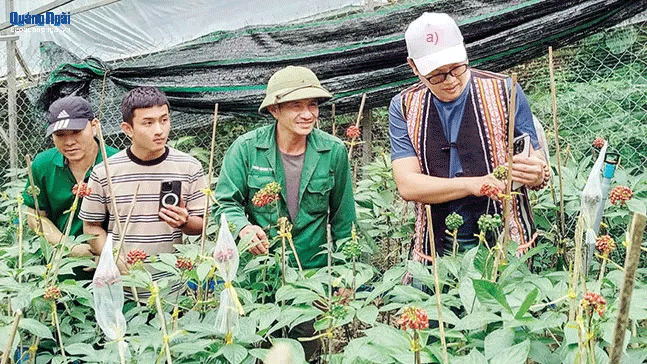The global agricultural sector is undergoing a profound transformation, driven by the need for greater efficiency, sustainability, and resilience. In Vietnam, Quang Ngai province is emerging as a compelling case study in the strategic adoption of High-Tech Agriculture (HTA). Moving beyond traditional methods, HTA integrates advanced technologies—such as automation, IoT sensors, AI, and biotechnology—to optimize production, minimize environmental impact, and create high-value products. This approach is not just a trend; it’s a necessary evolution to meet the demands of a competitive global market and ensure long-term food security.
The On-the-Ground Impact: Data from the Field
The implementation of HTA in Quang Ngai is yielding tangible, data-driven results that underscore its viability:
- Scale of Adoption: The province now has over 30,000 hectares of crops cultivated using HTA applications. This includes nearly 162 hectares certified under VietGAP standards and 71 registered production area codes, with 35 of these codes for export covering more than 601 hectares.
- Precision Farming Success: Individual success stories highlight the dramatic efficiency gains. For instance, farmer Nguyen Duc Tin achieved an impressive yield of 1 – 1.2 tons of strawberries annually from just 3,000m² (0.3 hectares) using a fully automated greenhouse with sensor-controlled irrigation and climate systems. His produce commands a premium price of 450,000 – 500,000 VND/kg (approximately $18-20 USD), demonstrating strong market demand for quality-assured, technology-grown food.
- Economic and Brand Value: The province’s focus on value addition is evident in its OCOP (One Commune One Product) program, with 642 certified products from 319 entities. This includes 2 five-star, 48 four-star, and 592 three-star products. Brands like Tra Bong cinnamon and Ly Son garlic are leveraging technology to improve processing and packaging, aiming for higher OCOP ratings and export status.
Strategic Drivers: Policy, Premiums, and Unique Advantages
Quang Ngai’s strategy is multifaceted, capitalizing on its unique assets and implementing supportive policies:
- Leveraging Niche Crops: The province possesses a significant competitive advantage with high-value, unique products. Most notably, it has developed over 4,000 hectares of Ngoc Linh ginseng, a precious medicinal herb. Companies are now processing this into dozens of products, creating a lucrative niche market.
- Government Support and Vision: The provincial leadership is actively prioritizing HTA, researching policies to attract investment with a “win-win” philosophy that balances business and state interests. This includes plans to address critical infrastructure gaps in processing, packaging, and cold storage facilities.
- The Export Imperative: The push for production area codes is a direct response to stringent international market requirements. A 2023 World Bank report emphasizes that digital traceability and certified production processes are no longer optional for exporters; they are essential for accessing markets that pay premiums of 15-30% for verified safe and sustainable produce.
Addressing the Challenges: Land Fragmentation and Investment
Despite the progress, Quang Ngai faces hurdles common to many regions transitioning to modern agriculture. The most significant challenge is land fragmentation. With most HTA-planned areas managed by individual households on small, scattered plots interspersed with residential areas, it is difficult to attract large-scale corporate investment needed for major processing infrastructure. This fragmentation limits economies of scale and the implementation of large, unified tech solutions.
A Blueprint for Integrated, Value-Led Growth
Quang Ngai’s journey offers a replicable blueprint for agricultural modernization. The key takeaways are:
- Technology is an Enabler, Not the End Goal: The successful models focus on using technology to solve specific problems—increasing quality, ensuring consistency, and reducing resource use—rather than tech for tech’s sake.
- Premium Markets Require Premium Practices: Investing in certifications (VietGAP, OCOP, export codes) and traceability is essential for capturing higher value and building consumer trust.
- Synergy is Critical: The greatest success will come from integrating HTA with the development of unique local products (like Ngoc Linh ginseng), improving rural infrastructure, and fostering strong public-private partnerships.
For farmers, agronomists, and investors, Quang Ngai demonstrates that the future of agriculture lies in smart, sustainable intensification. By embracing technology strategically and focusing on value addition, agricultural stakeholders can build resilient operations that are not only productive but also profitable and sustainable for generations to come.































